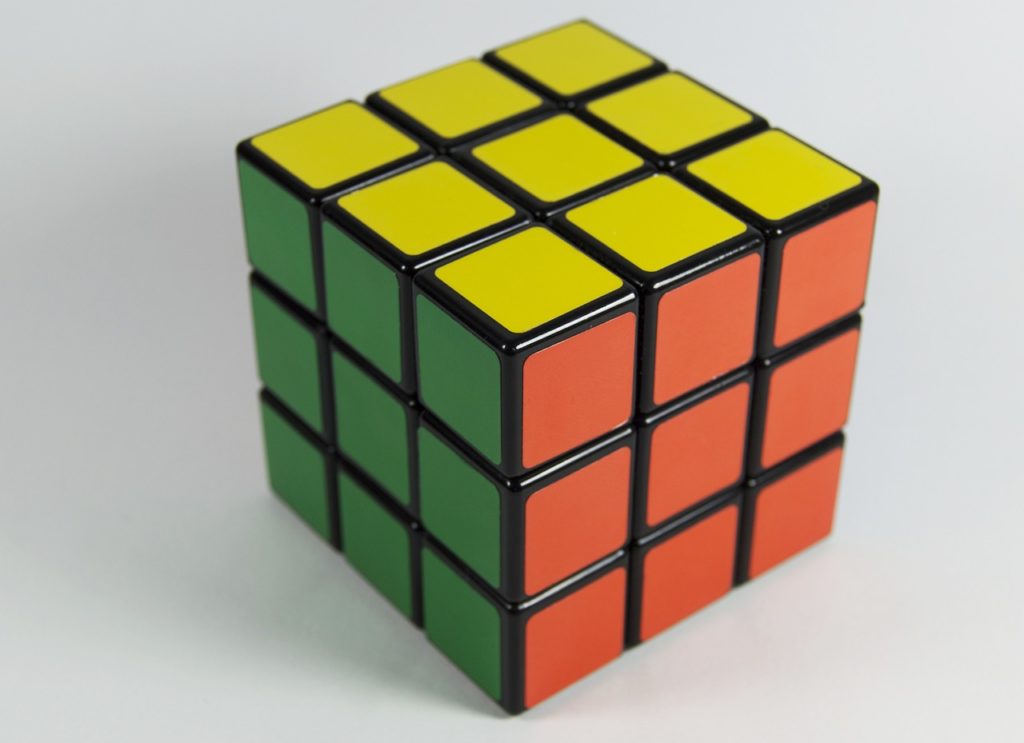The Power of Math Games for Kids
Math games have the power to make learning enjoyable and engaging for children. By incorporating math games into playtime, parents can unleash their child’s inner math whiz while fostering a positive attitude towards mathematics.

Why Math Games Are Important
Math games are important for several reasons. First and foremost, they provide a fun and interactive way for children to develop and strengthen their math skills. Unlike traditional worksheets or textbooks, math games offer a hands-on approach that allows kids to actively participate in the learning process. This interactive nature helps to capture their attention and maintain their interest in mathematical concepts.
Furthermore, math games can help children build confidence in their math abilities. By presenting mathematical challenges in a game-like format, children feel more motivated to tackle them and persevere through the learning process. As they experience success and overcome obstacles in the games, their self-esteem and belief in their mathematical skills grow.
Benefits of Incorporating Math Games into Playtime
Incorporating math games into playtime offers numerous benefits for children’s learning and development. Some of the key advantages include:
- Enhanced Problem-Solving Skills: Math games often involve solving puzzles, logical reasoning, and critical thinking. By engaging in these activities, children develop their problem-solving skills and learn to apply mathematical concepts in practical situations.
- Improved Number Sense: Number sense, the understanding of numbers and their relationships, is crucial for mathematical proficiency. Math games that focus on counting, number recognition, and ordering help children develop a strong foundation in number sense.
- Strengthened Basic Operations: Basic operations like addition, subtraction, multiplication, and division form the building blocks of mathematical fluency. Math games that target these operations in a fun and interactive way can help children become more proficient in performing calculations.
- Developed Logical and Analytical Thinking: Logic and reasoning games, as well as pattern and shape games, stimulate children’s logical and analytical thinking abilities. These skills are essential for solving complex mathematical problems and are transferable to other areas of life.
- Enhanced Math Fact Fluency: Math fact fluency refers to the ability to recall basic math facts quickly and accurately. Math games that focus on repetition and practice of these facts can help children develop fluency, making mental calculations easier and more efficient.
By incorporating math games into playtime, parents can provide an enjoyable learning experience for their children while simultaneously building important math skills. Whether it’s counting games, problem-solving games, or strategy games, there is a wide variety of math games available to cater to different interests and age levels. To explore other exciting games for kids, check out our articles on cooking games for kids, party games for kids, board games for kids, and card games for kids.
Number Sense Games
Building a strong foundation in number sense is essential for young learners. Engaging in number sense games can make math fun and interactive, helping kids develop important math skills. Here are three types of number sense games that can captivate and educate young minds: counting games, number recognition games, and ordering and sequencing games.
Counting Games
Counting games are a fantastic way to introduce young children to the concept of numbers and counting. These games help kids develop their ability to count accurately and understand the relationship between numbers and quantities.
Counting games can take various forms, such as counting objects, counting fingers, or counting steps. They encourage children to count aloud, reinforcing number recognition and one-to-one correspondence. Counting games can be played using everyday objects, such as toys, buttons, or even food items. Below is an example of a counting game using buttons:
| Game Name | Instructions |
|---|---|
| Button Jar | Place a jar filled with buttons in front of the child. Ask them to count the buttons and state the number. Then, have them add or remove buttons and count again. This game helps reinforce counting skills and introduces the concept of addition and subtraction. |
Number Recognition Games
Number recognition games help children identify and recognize numbers. These games focus on developing a child’s ability to associate numerals with their corresponding quantities.
Number recognition games can involve visual aids, such as flashcards or number puzzles. They can also incorporate kinesthetic activities, like hopping on numbered mats or playing hopscotch. By engaging in these games, children become familiar with numbers and learn to identify them quickly. The table below presents an example of a number recognition game using flashcards:
| Game Name | Instructions |
|---|---|
| Number Flashcards | Create flashcards with numbers from 1 to 10. Show one flashcard at a time and ask the child to identify the number. To make it more challenging, mix up the cards and ask the child to arrange them in the correct order. This game enhances number recognition and sequencing skills. |
Ordering and Sequencing Games
Ordering and sequencing games help children understand the concept of numerical order and sequence. These games contribute to the development of logical thinking and problem-solving skills.
Ordering and sequencing games can involve arranging numbers in ascending or descending order, completing number patterns, or filling in missing numbers. These activities provide opportunities for children to practice counting, identify number patterns, and strengthen their understanding of number sequences. The table below illustrates an example of an ordering and sequencing game using number patterns:
| Game Name | Instructions |
|---|---|
| Fill in the Missing Numbers | Write a sequence of numbers with missing numbers on a piece of paper. Ask the child to identify the missing numbers and write them in the correct order. This game enhances number sequencing and reinforces number recognition skills. |
By incorporating counting games, number recognition games, and ordering and sequencing games into playtime, parents can nurture their child’s number sense while making math enjoyable. These games provide a solid foundation for further mathematical development and foster a positive attitude towards math. For more ideas on fun and educational games, visit our collection of fun kids games.
Basic Operations Games
To strengthen your child’s foundational math skills, engaging them in basic operations games can be both educational and enjoyable. These games focus on fundamental mathematical concepts such as addition, subtraction, multiplication, and division. By incorporating these games into playtime, your child can develop a solid understanding of these operations while having fun.
Addition and Subtraction Games
Addition and subtraction games are a great way to introduce your child to the world of numbers. These games help them practice adding and subtracting while improving their mental math skills. Whether played with cards, blocks, or even online platforms, these games provide an interactive and engaging way for children to enhance their computational abilities.
Consider playing games like “Race to 100,” where players take turns rolling a dice and adding the number rolled to their running total. The first one to reach 100 wins. Another option is the classic card game “War,” where players compare and subtract the numbers on their cards to determine the winner of each round. These games not only reinforce addition and subtraction skills but also promote healthy competition and critical thinking.
Multiplication and Division Games
As your child progresses in their mathematical journey, it’s important to introduce them to multiplication and division. These operations lay the foundation for more complex mathematical concepts. Multiplication and division games provide an interactive way for children to practice these skills while building their confidence.
Engage your child in games like “Multiplication Bingo,” where they solve multiplication problems on their bingo card. The first one to get a line or a full house wins. Another option is “Division War,” where players divide their cards equally and take turns solving division problems. The player with the highest quotient wins the round. These games not only reinforce multiplication and division but also enhance problem-solving abilities and strategic thinking.
Math Fact Fluency Games
Math fact fluency games focus on building speed and accuracy in recalling basic math facts. These games aim to improve your child’s ability to quickly solve simple arithmetic problems without relying on counting or using their fingers. By practicing these games regularly, your child can develop automaticity in their math skills.
Games like “Math Fact War” involve players solving math facts quickly and comparing their answers. The player with the correct answer first wins the round. Another option is “Math Fact Memory,” where players match cards with math facts and their solutions. This game promotes memory skills while reinforcing math fact fluency.
By incorporating addition, subtraction, multiplication, and division games into your child’s playtime, you can make math more enjoyable and accessible. Encourage them to explore these games, practice regularly, and develop a strong foundation in basic operations. Remember, learning through play is a powerful tool in unleashing your child’s inner math whiz.
Problem-Solving Games
Engaging children in problem-solving games not only makes learning math enjoyable but also enhances their critical thinking skills. This section explores three types of problem-solving games that can unleash your child’s inner math whiz: logic and reasoning games, pattern and shape games, and word problem games.
Logic and Reasoning Games
Logic and reasoning games help children develop their analytical thinking skills and logical reasoning abilities. These games often involve puzzles, riddles, and challenges that require children to think critically and come up with creative solutions.
By engaging in logic and reasoning games, children learn to analyze information, make connections, and solve problems systematically. These games can be board games, online games, or even simple brain teasers that promote strategic thinking and problem-solving skills.
Pattern and Shape Games
Pattern and shape games are an excellent way to introduce children to the concept of patterns, symmetry, and geometric shapes. These games allow children to recognize and create patterns, identify shapes, and develop spatial reasoning skills.
Through pattern and shape games, children learn to identify and extend patterns, understand symmetry, and comprehend basic geometric concepts. These games can be as simple as arranging blocks to create patterns, or more complex, involving puzzles and tangrams that require children to manipulate shapes to form specific patterns.
Word Problem Games
Word problem games are a practical and engaging way to improve children’s mathematical skills by applying them to real-life scenarios. These games present math problems in the form of stories or word puzzles, challenging children to decipher the problem, extract relevant information, and apply their math knowledge to find a solution.
Word problem games help children understand the practical applications of math concepts and develop their problem-solving abilities. By engaging in these games, children enhance their reading comprehension skills while simultaneously strengthening their math skills.
By incorporating logic and reasoning games, pattern and shape games, and word problem games into your child’s playtime, you can foster their problem-solving skills and ignite their passion for math. Remember, making math fun and engaging is key to nurturing your child’s mathematical abilities. For more exciting game ideas and strategies to make math enjoyable, check out our fun kids games section.
Next, let’s explore another category of math games that focuses on strategy and critical thinking skills.
Strategy and Critical Thinking Games
Incorporating strategy and critical thinking games into your child’s playtime can be a fantastic way to develop their mathematical skills while having fun. These types of games encourage problem-solving, logical reasoning, and strategic thinking. Let’s explore three categories of strategy and critical thinking games: strategy games, puzzle games, and math card games.
Strategy Games
Strategy games provide an opportunity for kids to think strategically, plan ahead, and make decisions based on logical reasoning. These games often involve setting goals, analyzing different scenarios, and coming up with the most effective strategies to achieve victory. Some popular strategy games for kids include chess, checkers, and tic-tac-toe.
By engaging in strategy games, children learn to think critically, consider multiple possibilities, and anticipate the consequences of their moves. These games not only enhance their mathematical skills but also foster patience, concentration, and problem-solving abilities.
Puzzle Games
Puzzle games are a fantastic way to challenge your child’s critical thinking skills and problem-solving abilities. These games often involve finding solutions to various puzzles or riddles by applying logical reasoning and deductive thinking. Puzzles can range from jigsaw puzzles to brain-teasers and Sudoku.
Playing puzzle games helps children develop their analytical and reasoning skills, as they need to analyze patterns, make connections, and think creatively to solve the puzzles. These games also improve spatial awareness, memory, and attention to detail.
Math Card Games
Math card games combine the fun of playing cards with mathematical concepts, making learning math enjoyable and engaging for kids. These games use a deck of cards to reinforce number recognition, basic operations, and critical thinking skills. Popular math card games include War, Go Fish, and Math War.
Math card games provide a hands-on approach to learning math, allowing children to practice their math skills in a playful and interactive way. These games can improve number sense, mental math abilities, and mathematical fluency.
By incorporating strategy and critical thinking games into your child’s playtime, you can foster their mathematical skills while keeping them entertained. Remember, the key is to create a positive and supportive environment where learning through play is encouraged. Encourage your child to explore different games, have fun, and embrace the joy of learning math. For more exciting game ideas, check out our articles on cooking games for kids, party games for kids, and board games for kids.
Making Math Fun and Engaging
To cultivate a love for math in children, it’s essential to make math fun and engaging. Incorporating math games into daily life, creating a positive math environment, and utilizing resources for finding math games can all contribute to an enjoyable and educational math experience for kids.
Incorporating Math Games into Daily Life
One way to make math a part of everyday life is to incorporate math games into daily activities. Whether it’s during meal preparation, grocery shopping, or car rides, there are numerous opportunities to engage children in math-related games. For example, you can encourage kids to count and sort ingredients while cooking, estimate the total cost of items while shopping, or play number plate games during car trips. By turning these activities into fun math challenges, children can develop their math skills while having a great time.
Creating a Positive Math Environment
Creating a positive math environment at home is crucial in fostering a child’s enthusiasm for the subject. Parents can promote a positive mindset towards math by emphasizing the importance of math skills and praising their child’s efforts and progress. It’s essential to create a safe space where mistakes are seen as learning opportunities and where children feel comfortable asking questions and seeking help when needed. By supporting and encouraging their mathematical exploration, parents can help their children develop a positive attitude towards math.
Resources for Finding Math Games
Finding the right math games for kids can be an exciting adventure. There are numerous resources available, both online and offline, that offer a wide range of math games suitable for different ages and skill levels. Online platforms, educational websites, and mobile applications provide access to interactive math games that children can enjoy. Additionally, books, magazines, and local toy stores often offer a variety of math games that can be played offline. By exploring these resources, parents can discover a wealth of math games that align with their child’s interests and learning style.
When searching for math games, it’s important to consider the specific math skills targeted by each game. For example, number sense games focus on counting, number recognition, and sequencing, while problem-solving games enhance logic and reasoning abilities. By selecting games that align with the areas of math that children need to develop, parents can ensure that their child is engaged and challenged in a meaningful way.
By incorporating math games into daily life, creating a positive math environment, and exploring resources for finding math games, parents can unleash their child’s inner math whiz. With these strategies in place, math becomes an enjoyable and exciting adventure, fostering a lifelong love for learning and problem-solving.






